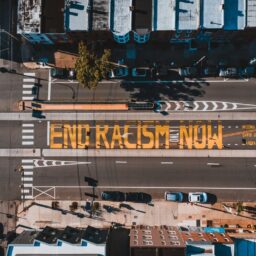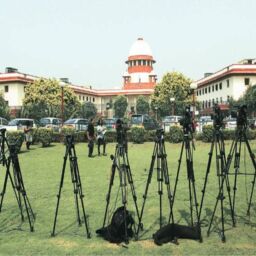Introduction
The Right to Shelter pertains to the basic necessity of adequate standard of living and housing conditions for people in society and this right has been acknowledged as a significant human right by various international conventions like the United Nations Declaration of Human Rights and International Covenant on Economic, Social and Cultural Rights. In India, though this right has not been explicitly stated as a fundamental right the ambit of Article 21[1] which essentially refers to the fundamental Right to Life, was extended to incorporate this under its veil. The right to shelter also accommodates within it the right to have a clean, safe, and decent living situation which fosters the growth and development of an individual in all capacities including intellectual and physical. The necessity to distinguish the acknowledged right to shelter and the right to government accommodation was felt in the landmark case of UOI v. Onkar Nath Dhar[2] where the interpretation gave way to the consideration of this right to have a government accommodation allotted to a person in government services, to also been extended to them upon retirement.
Right to Shelter
The Indian Constitution provides the privilege and leverage to incorporate, through interpretations, within itself, such rights which might not have a direct or express mention in itself. This is necessary for laws are ever-evolving and the creative power of the judiciary allows for such inclusion or expansion of the laws. Now Right to Shelter is one such right that has been incorporated into the constitution as a fundamental right under Article 21 which provides for the Right to Life and personal liberty.
A constitutional background of the process of incorporation of the same is imperative. It was the case of Shantistar Builders v. Narayan Khimalal Totame[3], wherein the issue of the Right to Shelter was first put forth. The nature of the case was such that the Supreme Court emphasized the necessity and significance of reasonable standards of living and shelter for an individual to nurture and grow in all capacities of life. It was recognized as an important basic necessity and further an indispensable fundamental right under Article 21. Further, this right was given an expansive purview in the case of Shri P.G. Gupta v. the State of Gujarat[4] by suggesting that this be looked into and read in consonance with Article 19(1)(e)[5] of the Indian constitution which essentially provides an individual with the right to “reside and settle in any part of the territory of India”.
Further, the case of Chameli Singh v. State of Uttar Pradesh[6] gave a wider interpretation to this right by highlighting the necessity of looking at the right in the context of its societal and broader situational nitty-gritty. More emphasis was put on the ramifications of accessibility and the nature of the living setup. It was stated that the right to shelter did not limit itself only to the equipping of an individual with a living space divorced from the essential infrastructure and adequate surrounding conditions manifested in terms of sanitation, food, healthcare, communication pathways, etc. The right to shelter has been under scrutiny and evaluation in various other significant cases and has been expanded and given multiple individual interpretations in light of the public good.
Interpretation of the Right to Government Accommodation
The right to government accommodation is a mere interpretation in the extension of the right provided to the individuals involved in the course of their discharging such governmental services which mandatorily provide for such housing facilities. These speculative interpretations expand the meaning to establish a right in isolation of the duty or responsibility based on which the government accommodation was allotted, to begin with. Hence, these individuals more often than not belong to the categories which include resigned government workers, superannuated or retired individuals, and often even individuals with terminated service tenure. Thus, it is not a stretch to say that this right does not have a substantial legal backing to be lawfully adopted as an interpretation or extension of the established fundamental rights.
Factual Background of the case
The respondent, Onkar Nath Dhar, hailing from Kashmir, was transferred to the Intelligence Bureau, Delhi, and was allotted a government accommodation in Faridabad as part of his service. Upon his reaching the age of superannuation in 2006 and retirement thereby, the respondent asked for retention and an extension in his stay at the government-allocated accommodation based on adverse circumstances prevailing in his native state of Jammu and Kashmir. This, however, was put forth with the condition of being charged a nominal license fee for the entirety of the extended period of accommodation. However, certain proceedings were initiated against the respondent under The Public Premises (Eviction of Unauthorized Occupants) Act, 1971[7] which was challenged and rejected at the Faridabad District Court. However, the Punjab and Haryana High Court, relying on the case of J.L. Koul v. the State of J&K[8] adjudged that the appellant, Onkar Nath Dhar, was a Kashmiri migrant and thereby entitled to a transit accommodation owing to the fact that returning to the native state of J&K was not possible. Hence, the court ordered that the order of eviction be put aside.
Analysis of the Judgment
The apex court agreed with the stand of the appellant, the centre, and stated that the allotment of government accommodation to a person who was not in service with the government was not correct because such accommodations are meant for in-service officers and workers and not retired, terminated or resigned officers. Further, the extension provided on the basis of compassion caused by the circumstances on the native state would have been appropriate for a period of one or two months but highly elongated periods of extension in a newly allotted accommodation or the pre-allotted such as this are erroneous, even with the element of nominal license fee attached to it. The court further highlighted the fact that a government employee in absence of an adequate living setup has the option to avail a transit accommodation or receive cash compensation in its stead. The essence of compassion, however, does not allow the employee to avail of a government accommodation post-retirement.
Reviewing the use of the right to shelter by the respondent in the case, the apex court touched upon the financial and social background of the respondent to establish that he belonged to a comparatively significant class of privilege and the said fundamental right under Article 21 was available to all the citizens. The respondent, thereby, given preferential treatment would not be appropriate given the fact that there also are not any direct provisions with respect to the accommodation of displaced persons from the state of J&K on account of terrorism. The apex court termed the judgment provided by the high court to have been irrational and arbitrary in nature and the court, therefore, set aside the decision and allowed for the present appeal. Furthermore, the respondent, Onkar Nath Dhar was ordered to vacate the said accommodation.
Conclusion
Thus, a significant differentiation between the right to shelter and the right to government accommodation was drawn in this judgment which also prevented the transgression of the latter into the fundamental right enshrined under Article 19 and 21 of the Indian constitution. This clear demarcation was necessary for the establishment of a just precedent to minimize instances of this nature that possess a threat to the very core ideals of equality and dignity. Misinterpretation of laws can have significant ill consequences and the judiciary has been assigned the responsibility to prevent the same which was rightly undertaken in this case.
Author(s) Name: Snigdha (Gujarat National Law University, Gandhinagar)
References:
[1] India Const. art. 21.
[2] Union of India (UOI) and ors. v. Onkar Nath Dhar, 2021 (226) AIC 85.
[3] Shantistar Builders v. Narayan Khimalal Totame and ors., 1990 (16) ALR 173.
[4] Shri P. G. Gupta v. State of Gujarat & Ors., 1995 (2) SCT 765 (SC).
[5] India Const. art. 19, cl. 1(e).
[6] Chameli Singh and ors. v. State of Uttar Pradesh and ors., AIR 1996 SC 1051.
[7] The Public Premises (Eviction of Unauthorized Occupants) Act, 1971, No. 40, Acts of Parliament, 1949 (India).
[8] J.L. Koul and Ors. v. the State of J&K and Ors., AIR 2010 SC 3689.
















